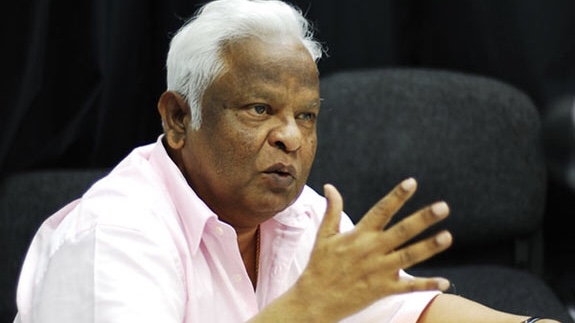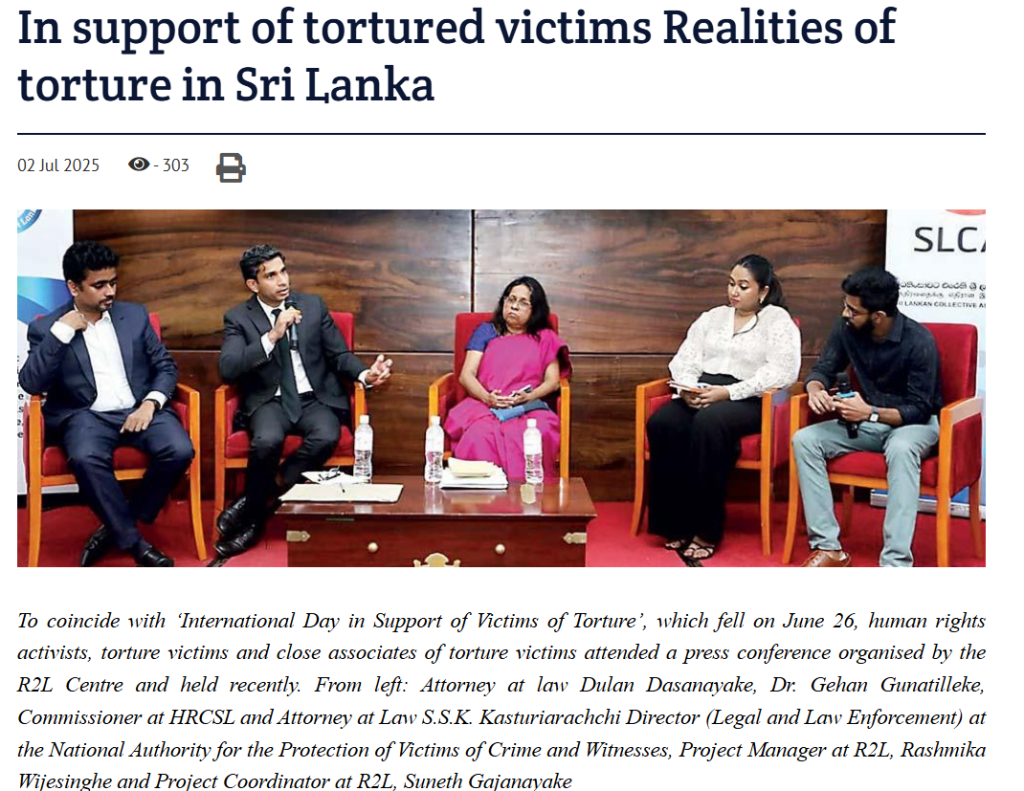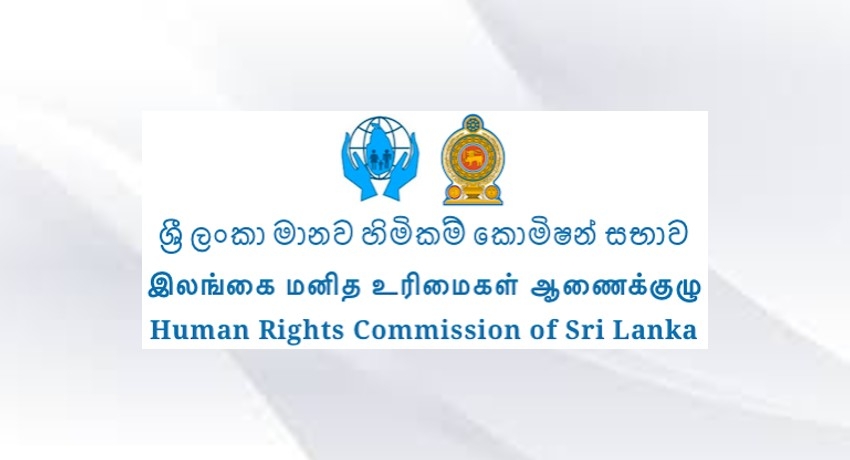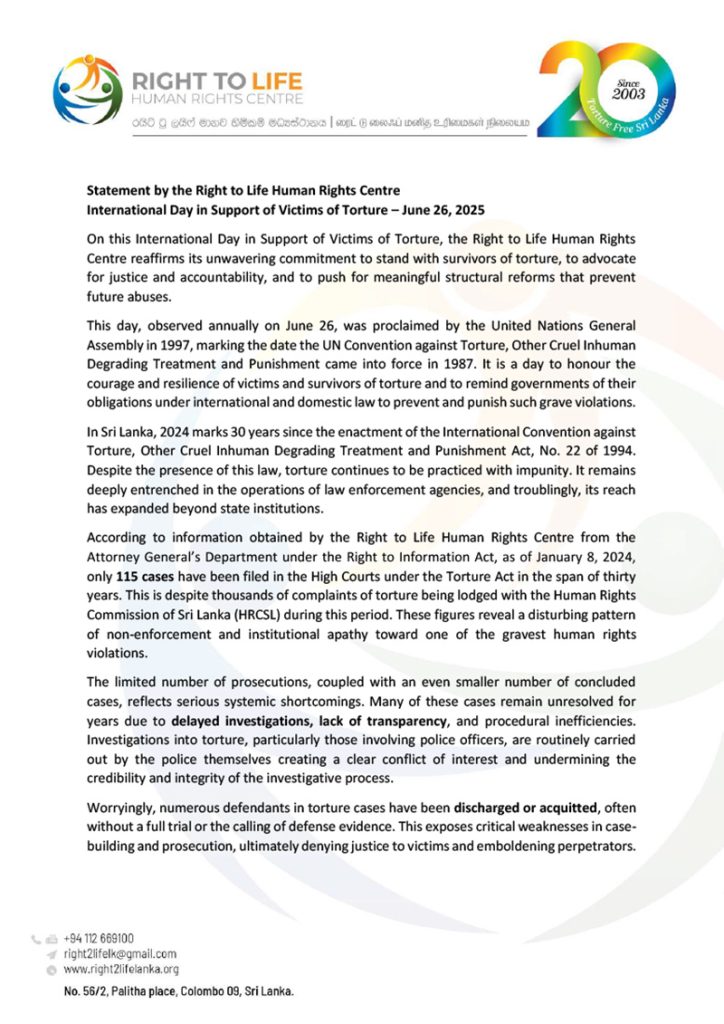By Basil Fernando
The Sri Lankan delegation to the United Nations Human Rights Council (UNHRC) suffered a great setback when its promise to amend the Prevention of Terrorism (Temporary Provisions) Act, No. 48 of 1979 as amended (PTA) was responded to by the 16 UN special experts calling on the Government of Sri Lanka (GoSL) to suspend the PTA altogether and immediately. The experts said, after the suspension, the Government could suitably enact anti terrorism law which is in keeping with international law.
Thus, the usual trick employed by Sri Lankan delegations before the sessions of the UNHRC by making various promises and even exhibiting draft Bills, thereby trying to create the impression that some compliance with the request of the Council is being considered by the Government was not able to convince the international community of the sincerity of the GoSL. For many years, Sri Lankan delegations including this time’s delegation led by Foreign Minister Professor G.L. Peiris himself, had sophisticated the art of practicing various kinds of deceptions to create a false impression that the Government is willing to expand the freedom of the people and that they will take necessary steps for this purpose. When the Council sessions are over, and all the promises are forgotten, the next stage of discussing these things begins only when the next sessions of the UNHRC are to be held. This circus goes on and on and as far as the people are concerned, the situation of repression is ever increasing.
The purpose of the UN HR mechanisms is to assist Governments in order to improve the means by which their own people will enjoy a greater freedom. The various meetings such as UNHRC sessions and discussions with the various treaty bodies are all designed with the idea of mutual cooperation through which the ultimate beneficiaries will be the people of each country.
What the PTA involves is not just only the rights of the minorities but the rights of the entire nation that whatever measures that are taken for ensuring national security be made without striking the right to protection of the individuals and groups living in a society, which is the primary concern of promoting human rights. When the balance is shifted and the security laws are merely used not in order to protect the people’s freedom but against the people themselves, then the very possibility of the existence of a free nation comes to be challenged. In Sri Lanka, everybody has reached that stage quite sometime back.
The possibilities open for prolonged detentions through the PTA has not in any way strengthened the Sri Lankan criminal justice system to deal with horrendous violations of rights. That you can easily get away with murder is today a kind of common belief. That is in a backdrop where grave kinds of abuses have taken place such as large scale enforced disappearances, events like the Easter Sunday bomb blasts and so many other daily events where the arbitrary use of detention has become a matter of grave concern for the people. Fear and intimidation reigns in the civil society and thereby the public space for participation to improve their own life conditions have been stifled. Under these circumstances, a strong condemnation by 16 Special Mandate Holders of the UN is a quite welcomed gesture to point to the need for action rather than promises in terms of dealing with the freedom of the people.
The 1978 Constitution which has lasted for 43 years now and the PTA which has lasted for 40 were the two hands of the former President J.R. Jayewardene which has been keeping the Sri Lankan political and legal systems strangled. Now, both are being seriously challenged as the people have experienced enormous sufferings due to such repressive laws.
The statement by the 16 Special Mandate Holders should be an encouragement to the people of Sri Lanka themselves to utilize the situation to demand the end of the PTA and at the same time to also demand the end of the repression that is carried out through the 1978 Constitution. What the UN agencies can do is to merely assist the people themselves who themselves must decide as to what kind of nation they want to live in. Many declare publicly that Sri Lanka is a less attractive place for them to live than ever before. Under these circumstances, efforts by the people themselves including the Opposition political parties, the trade unions and all civil society organizations should be in order to improve their own rights and end the extremely repressive laws and practices that are developed in Sri Lanka.




